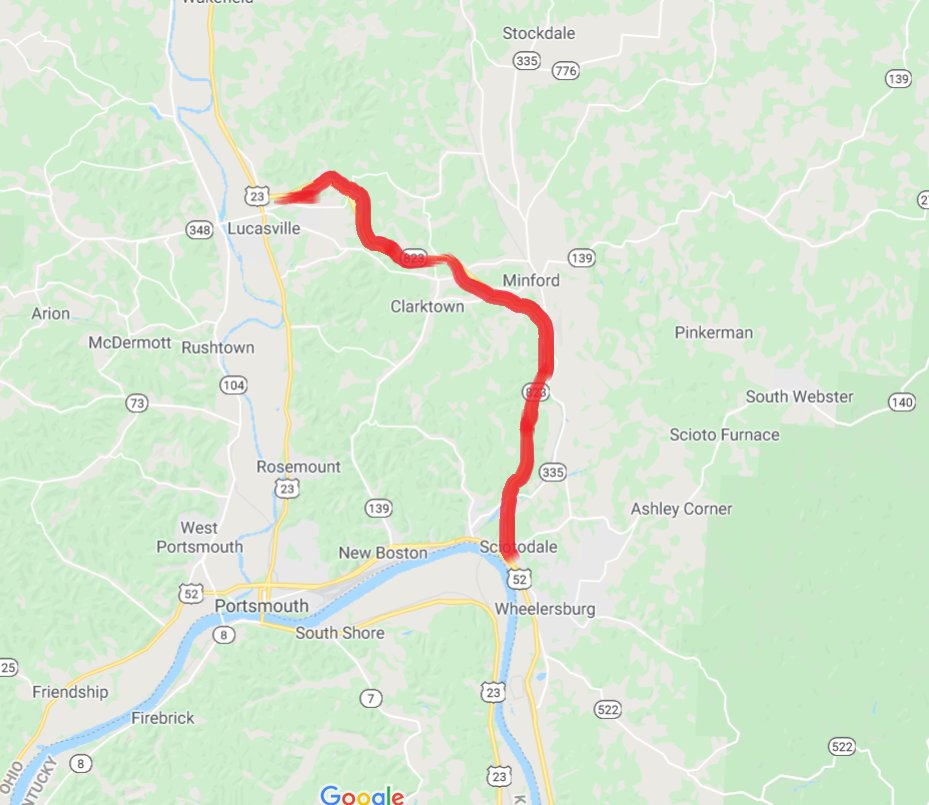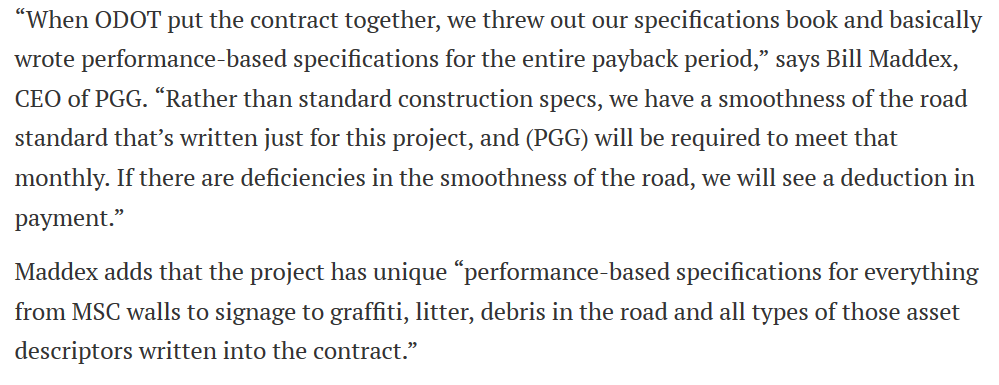1/ Lousy highway projects never die; They just hibernate. Ohio DOT began planning for Portsmouth Bypass in (wait for it)... 1962. The Bypass (SR 823) is a $646 million 16-mile, four-lane, access-controlled highway in Scioto County, Ohio.
2/ The City of Portsmouth& #39;s population has declined by *half* since 1940s to 20,340 today. Yet, ODOT built a major highway with a total cost of $1.2 billion over the life of the DBFOM P3 concession, which expires in 2053.
3/ The corridor is part of the Appalachian Development Highway System (ADHS). But just because someone drew a line on a map sixty years ago doesn& #39;t mean it& #39;s a good use of limited resources. There are better options to provide economic opportunity and mobility to residents.
4/ So let& #39;s talk about "economic development" and land use. Highways are always touted as tools of economic development. But let& #39;s think about what this quote from the Port Authority means. Take note of the phrase "hellacious brownfield" and reference to utilities.
5/ ODOT will spend $1.2 BILLION on these 16 miles of highway in the coming decades.
You know what else the state could do with that money? CLEAN UP LOCAL BROWNFIELDS for economic redevelopment. Imagine that.
You know what else the state could do with that money? CLEAN UP LOCAL BROWNFIELDS for economic redevelopment. Imagine that.
6/ This official is saying we should keep despoiling greenfields and let past industrial pollution take land out of productive use essentially forever. What?
The second complaint is about utility access. But look at the corridor photo. Lot of land with.... no utilities.
The second complaint is about utility access. But look at the corridor photo. Lot of land with.... no utilities.
7/ And what does ODOT say is the purpose of the bypass in the TIFIA loan application? Hint: It& #39;s not local economic development.
This road is about economic activity BYPASSING Portsmouth on its way to Columbus.
This road is about economic activity BYPASSING Portsmouth on its way to Columbus.
8/ I mean, the presence of bypasses around communities up and down the Appalachian spine has unleashed a wave of economic development. Certainly this time it will be the magic elixir.
9/ It just wouldn& #39;t be a highway project without invoking congestion. And ODOT delivers beautifully, stating: "access points and traffic signals" along US 23/US 52 create "congestion impacts on the local communities."
Congestion... in a place with 1/2 its former population.
Congestion... in a place with 1/2 its former population.
10/ Finally, lets talk about budgets and recessions. P3s force gov. to think about long-term performance. This benefit should be weighed against the inflexibility that it creates during an economic downturn. The Portsmouth Bypass availability payments are locked in for decades.
11/ This means that ODOT has less flexibility to manage its cash during the crisis. If the concessionaire fulfills its contract, ODOT must pay — even if choosing deferred maintenance on the Bypass would be more rational for a short time.
12/ For proponents, highways are always the answers.
- Got congestion? Highways!
- Economically depressed and no congestion? Highways!
Let& #39;s invest in people and places instead of highways that route economic activity around and away from struggling communities.
- Got congestion? Highways!
- Economically depressed and no congestion? Highways!
Let& #39;s invest in people and places instead of highways that route economic activity around and away from struggling communities.

 Read on Twitter
Read on Twitter







